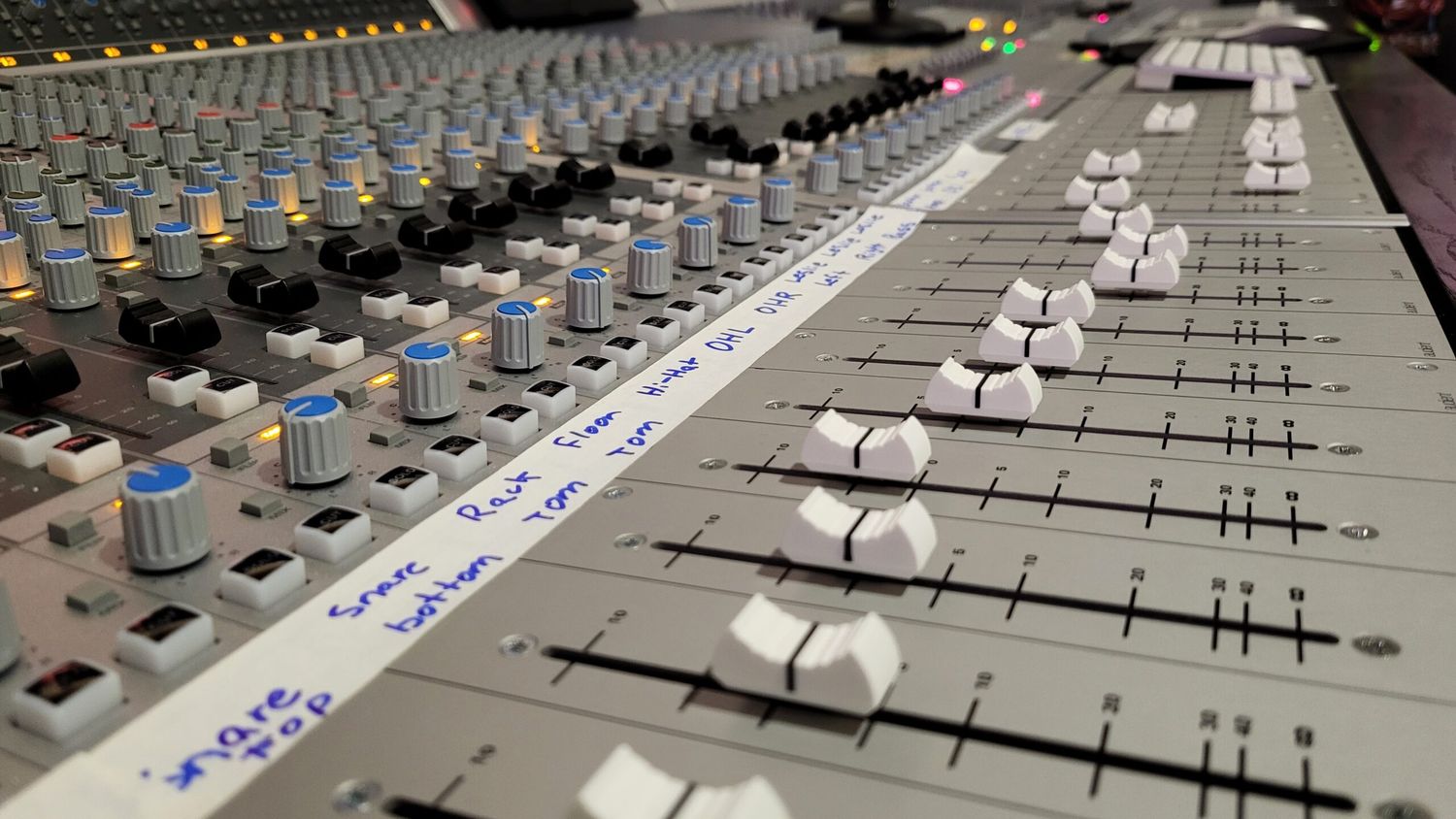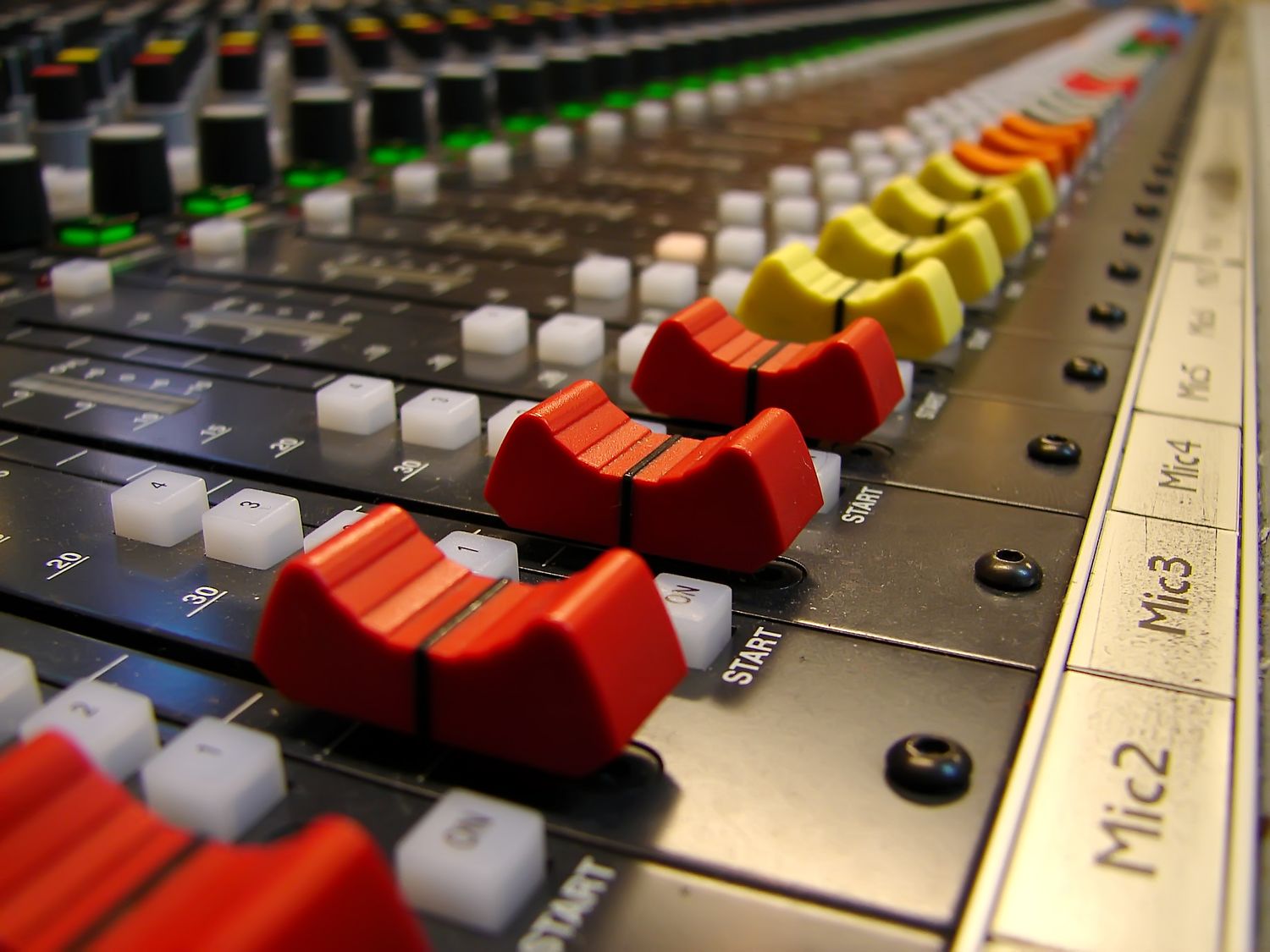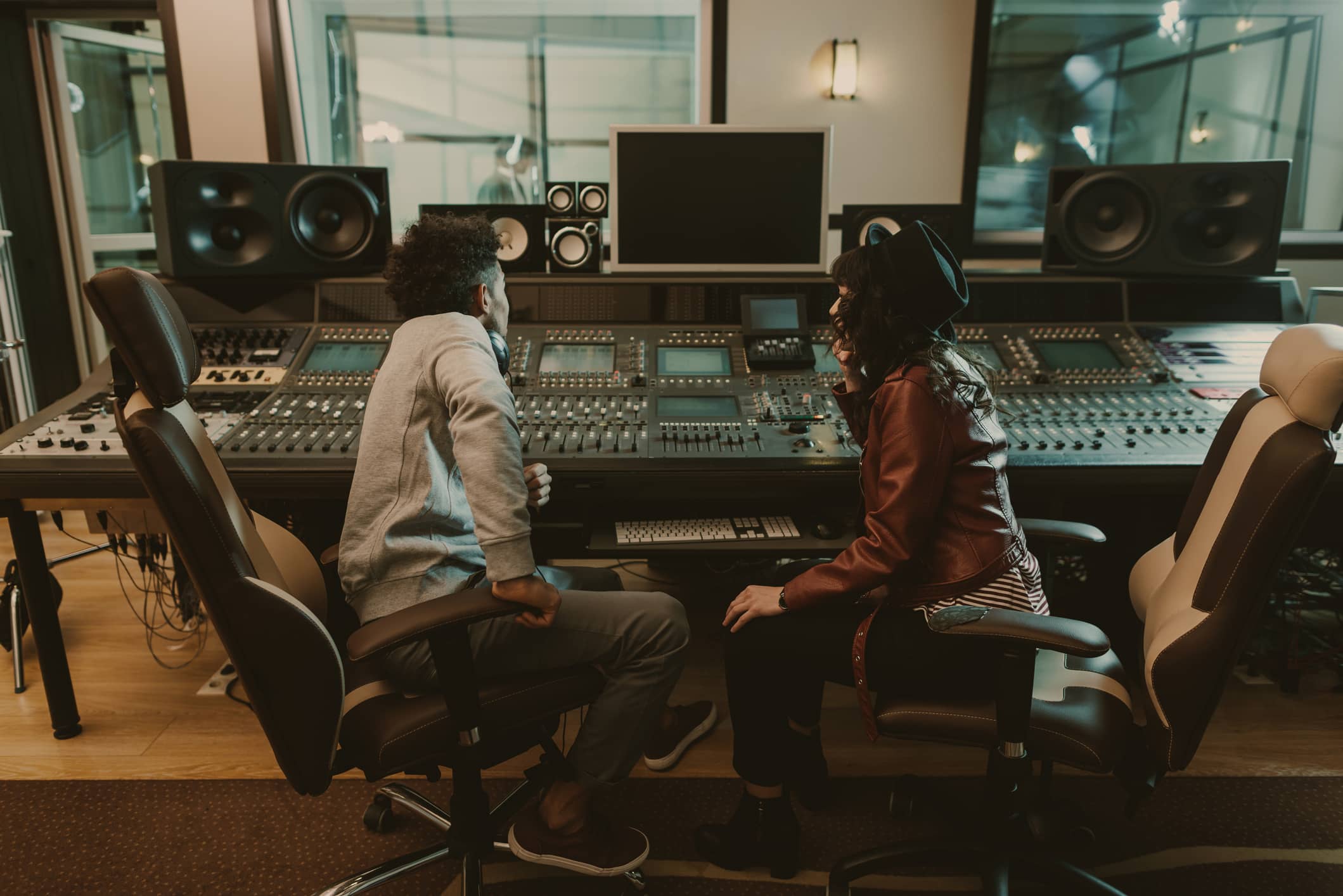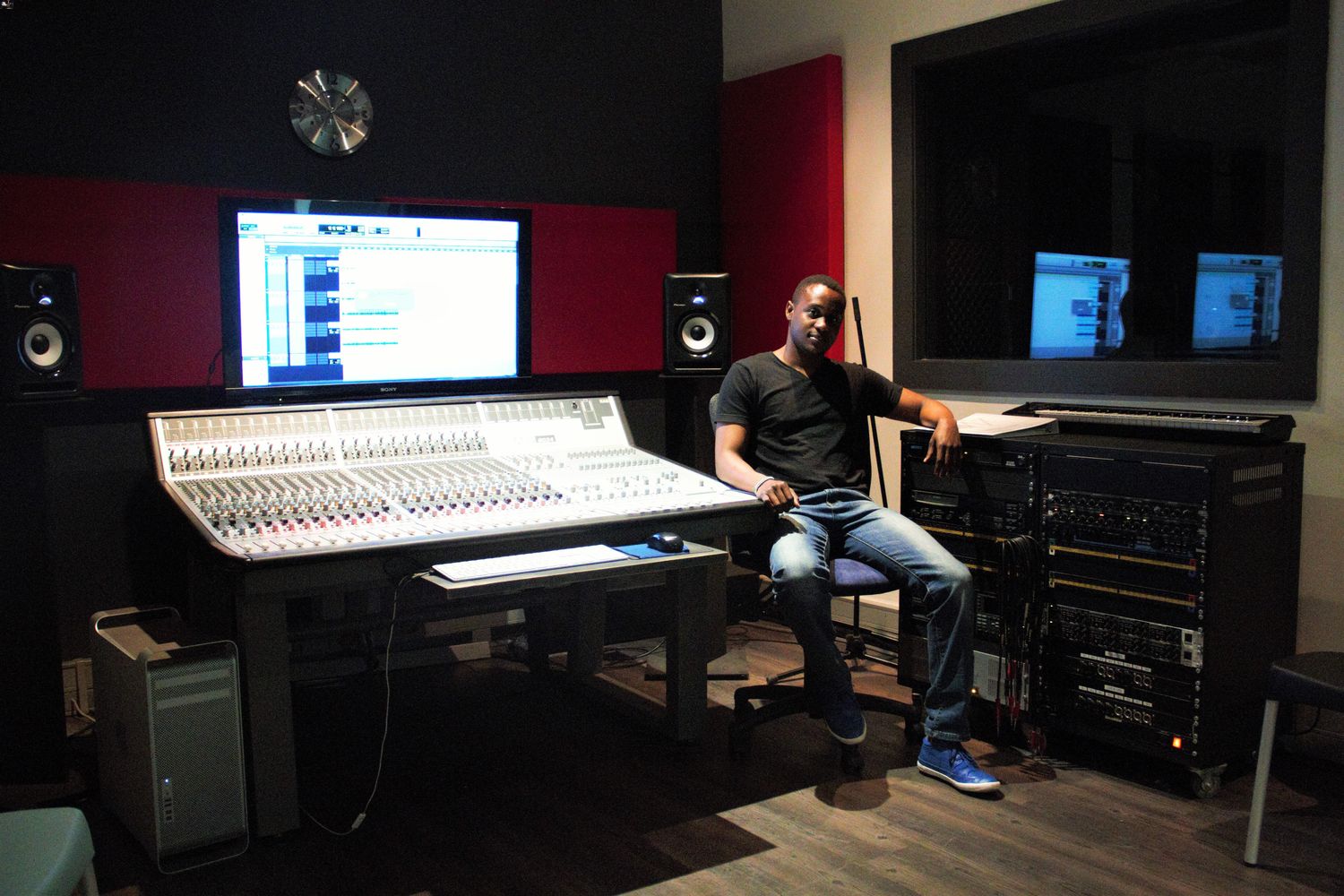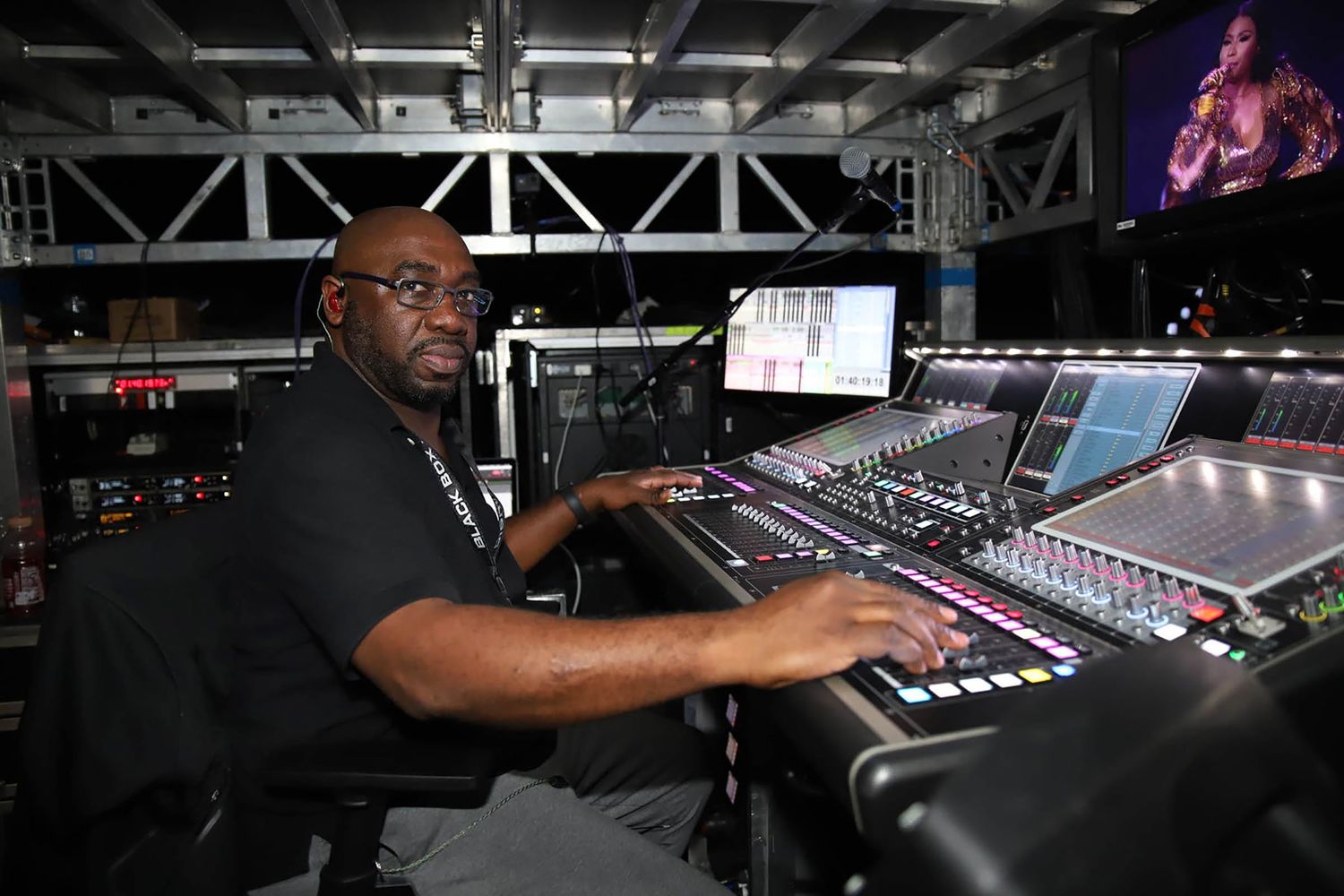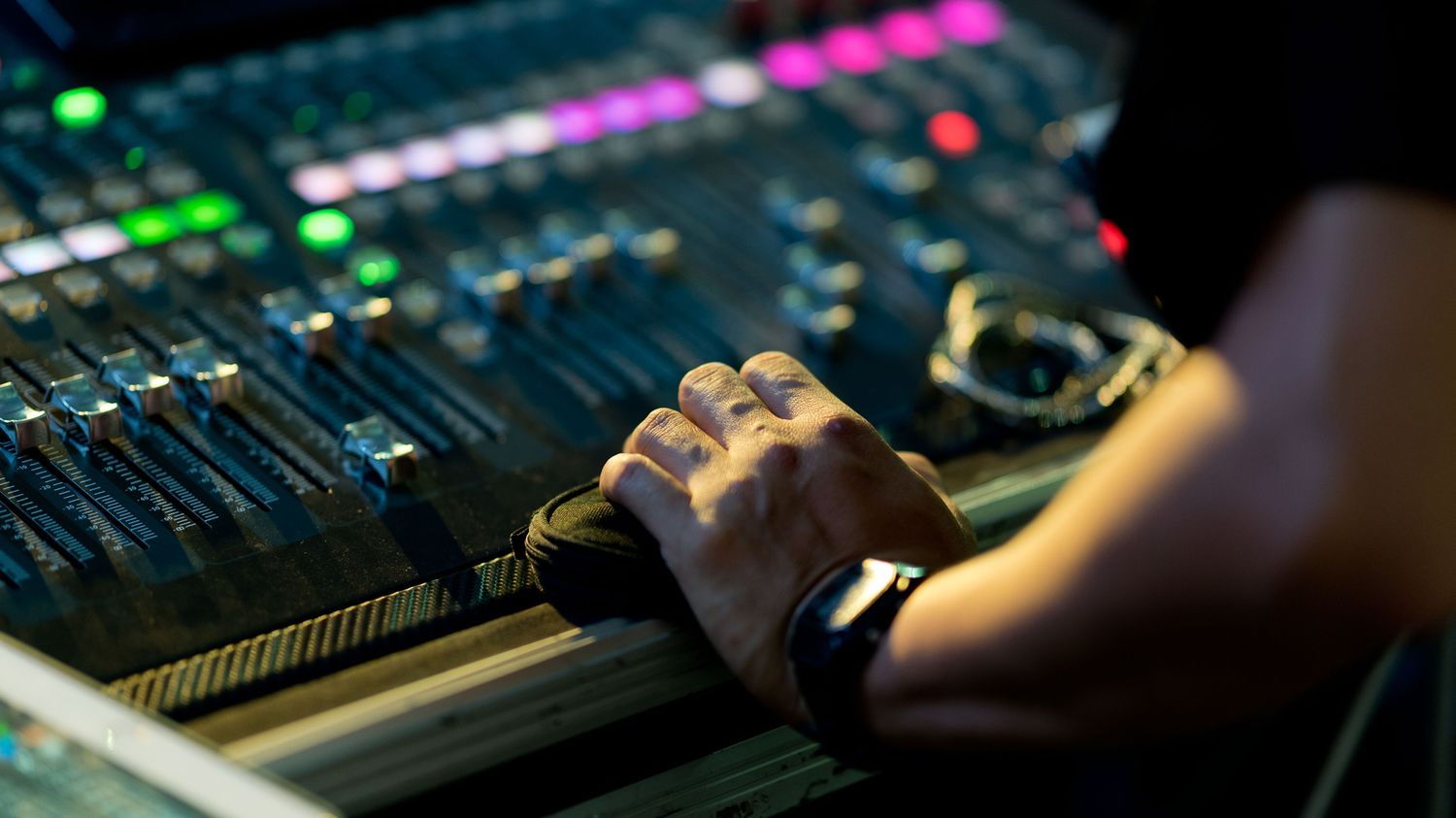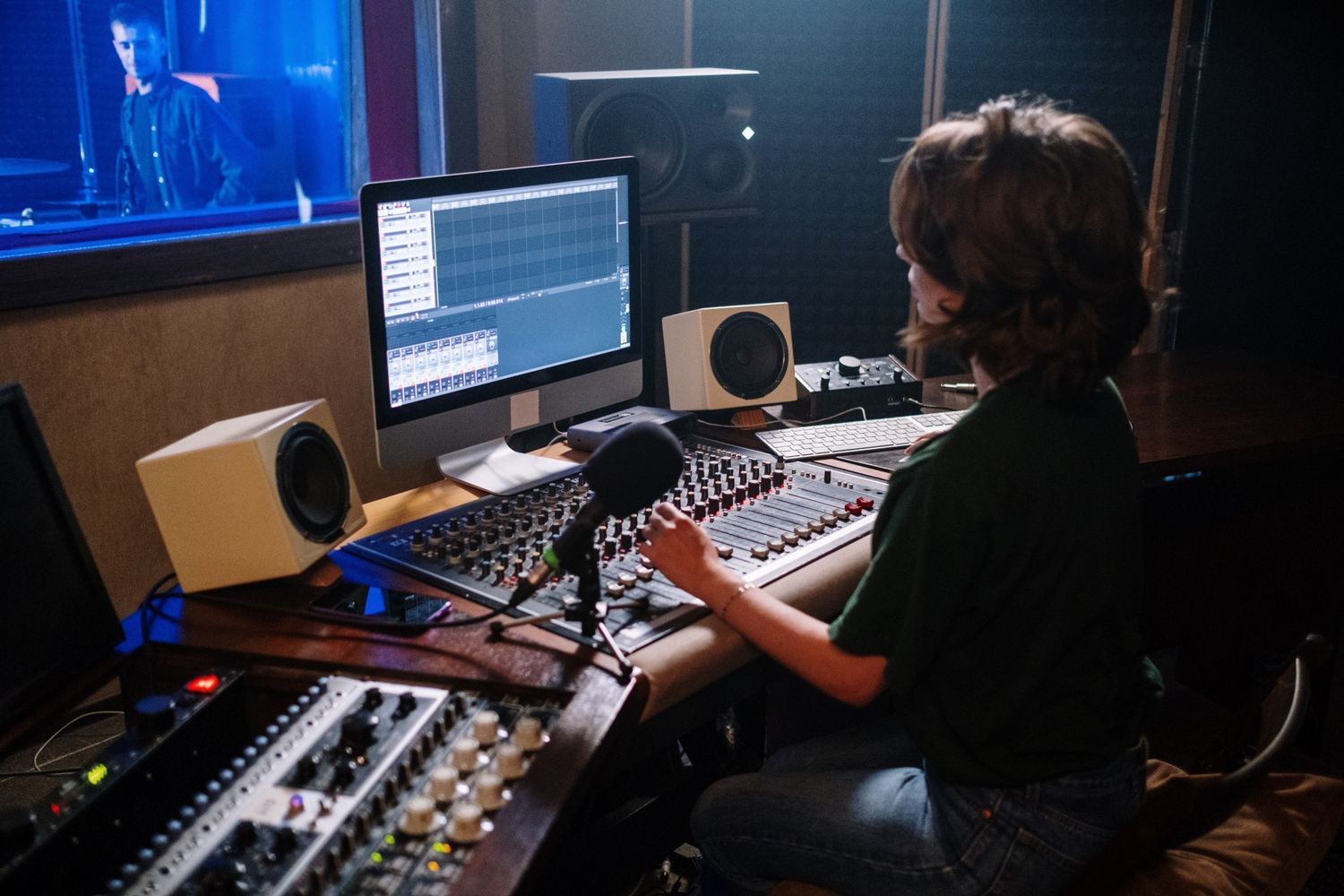Home>Production & Technology>Sound Engineer>How To Be A Sound Engineer For Games
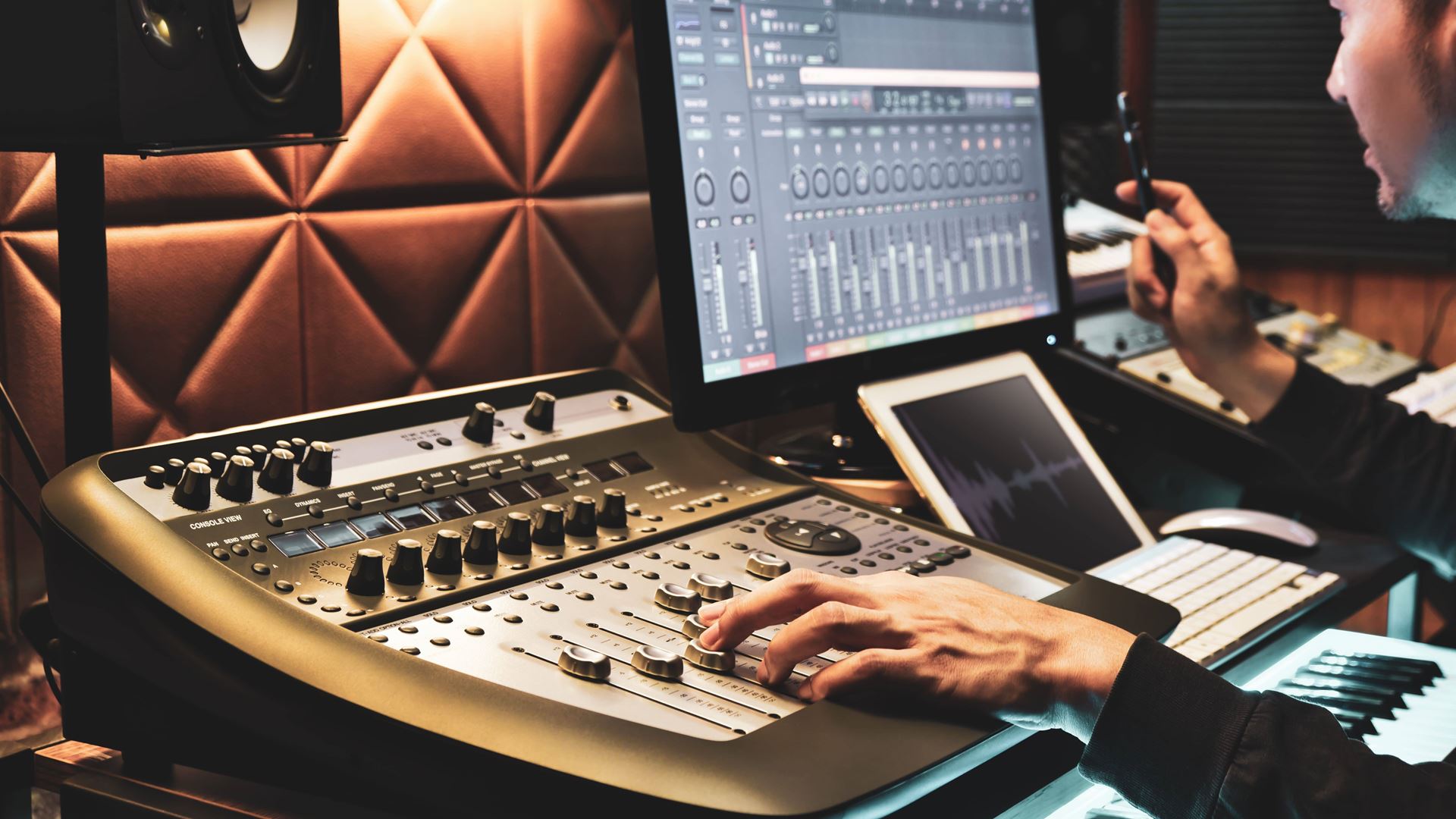

Sound Engineer
How To Be A Sound Engineer For Games
Published: March 7, 2024
Learn how to become a skilled sound engineer for games with our comprehensive guide. Explore the essential skills and tools needed to excel in this exciting field.
(Many of the links in this article redirect to a specific reviewed product. Your purchase of these products through affiliate links helps to generate commission for AudioLover.com, at no extra cost. Learn more)
Table of Contents
- Introduction
- Understanding the Role of a Sound Engineer in Game Development
- Essential Skills and Qualifications for a Sound Engineer in Games
- Tools and Software Used by Sound Engineers in Game Development
- Creating and Implementing Sound Effects in Games
- Working with Music and Voiceovers in Game Development
- Collaborating with Game Developers and Designers
- Tips for Advancing Your Career as a Sound Engineer in Games
Introduction
Welcome to the exciting world of sound engineering in game development! As technology continues to advance, the demand for immersive audio experiences in video games has reached new heights. Sound engineers play a pivotal role in creating captivating auditory elements that enhance the overall gaming experience. From realistic sound effects to dynamic musical compositions, the work of a sound engineer is integral to bringing virtual worlds to life.
In this comprehensive guide, we will delve into the multifaceted realm of sound engineering for games, exploring the essential skills, tools, and creative processes that define this dynamic profession. Whether you're a budding enthusiast eager to embark on a career in game audio or a seasoned professional seeking to expand your expertise, this article will provide valuable insights and practical tips to elevate your craft.
Throughout this journey, we will uncover the intricate art of crafting soundscapes that resonate with players, delve into the technical aspects of audio implementation, and shed light on the collaborative dynamics between sound engineers, game developers, and designers. Additionally, we will explore the diverse array of tools and software utilized by sound engineers to sculpt and integrate audio elements seamlessly into the gaming environment.
As we venture deeper into the realm of game audio, you will gain a profound understanding of the pivotal role that sound engineers play in shaping the emotional impact and immersive quality of video games. Whether it's the adrenaline-pumping roar of a race car, the haunting echoes of a mysterious dungeon, or the stirring melodies of an epic soundtrack, the work of a sound engineer leaves an indelible imprint on the player's experience.
So, fasten your seatbelt and prepare to embark on an exhilarating exploration of sound engineering in game development. By the end of this journey, you will be equipped with the knowledge and inspiration to carve your path in this dynamic and rewarding field. Let's dive in and unravel the secrets of creating captivating audio experiences in the world of gaming!
Understanding the Role of a Sound Engineer in Game Development
Sound engineers are the unsung heroes behind the mesmerizing auditory tapestries that enrich the gaming experience. Their role extends far beyond simply adding sound effects and music to games; they are the architects of immersive audio landscapes that breathe life into virtual worlds. A sound engineer's primary objective is to craft aural experiences that captivate players, evoke emotions, and seamlessly integrate with the visual and interactive elements of the game.
At the heart of their responsibilities lies the art of sonic storytelling. Sound engineers meticulously design and implement a diverse range of audio elements, including ambient sounds, character dialogue, environmental effects, and musical compositions. By leveraging their technical prowess and creative ingenuity, they infuse each game with a distinct sonic identity, elevating the overall immersion and engagement for players.
Moreover, sound engineers are instrumental in enhancing gameplay functionality through audio cues. From signaling the approach of adversaries to providing feedback on in-game actions, sound effects serve as vital communicators within the gaming environment. This dynamic aspect of their role underscores the significance of sound engineers in shaping the interactive dimension of games, contributing to the seamless fusion of audio and gameplay mechanics.
Furthermore, sound engineers collaborate closely with game developers and designers to align the audio direction with the overarching creative vision. By understanding the thematic nuances, narrative arcs, and gameplay dynamics, they tailor the audio elements to harmonize with the game's aesthetic and emotional resonance. This collaborative synergy ensures that the audio components not only complement the visual aspects but also reinforce the narrative and gameplay immersion.
In essence, the role of a sound engineer in game development transcends the realm of technical proficiency; it embodies a fusion of artistic expression, technical acumen, and collaborative synergy. Their ability to orchestrate captivating soundscapes, enhance gameplay functionality, and synchronize audio with the game's narrative underscores their indispensable contribution to the holistic gaming experience. As we unravel the intricacies of sound engineering in games, we gain a profound appreciation for the pivotal role that sound engineers play in shaping the auditory tapestry of the gaming landscape.
Essential Skills and Qualifications for a Sound Engineer in Games
The realm of game audio demands a diverse skill set and a deep understanding of both technical and creative aspects. Aspiring sound engineers must possess a blend of technical expertise, artistic sensibility, and a passion for interactive media. Here are the essential skills and qualifications that pave the path to success in this dynamic field:
Proficiency in Audio Production Software:
Mastery of digital audio workstations (DAWs) such as Pro Tools, Logic Pro, or Reaper is fundamental for sound engineers. Proficiency in editing, mixing, and mastering audio is crucial for sculpting intricate soundscapes and ensuring optimal audio quality within games.
Sound Design Expertise:
A keen ear for sound design is indispensable. Sound engineers must excel in creating and manipulating sound effects, from environmental ambiances to character movements, using synthesizers, samplers, and audio processing tools. This skill is pivotal in crafting immersive and evocative auditory experiences.
Knowledge of Interactive Audio Implementation:
Understanding interactive audio middleware such as Wwise and FMOD is essential for integrating dynamic audio elements into games. Sound engineers must grasp the principles of adaptive audio, real-time parameter modulation, and interactive music systems to synchronize audio with the ever-changing game environment.
Musical Proficiency:
A strong foundation in music theory and composition empowers sound engineers to craft compelling musical scores that resonate with the game's narrative and emotional arcs. Proficiency in playing musical instruments and arranging compositions adds depth to their creative repertoire.
Programming and Scripting Skills:
Familiarity with scripting languages like C# and proficiency in game engines such as Unity or Unreal Engine are advantageous. These skills enable sound engineers to collaborate effectively with game developers, implement audio features, and troubleshoot technical issues within the game engine environment.
Communication and Collaboration:
Sound engineers must possess strong communication skills to effectively collaborate with game developers, designers, and fellow audio professionals. The ability to articulate creative concepts, interpret feedback, and align the audio direction with the game's vision is paramount for a cohesive and synergistic workflow.
Adaptability and Problem-Solving:
The dynamic nature of game development demands adaptability and quick problem-solving skills. Sound engineers must navigate evolving project requirements, technical challenges, and creative iterations with agility and resourcefulness.
Academic Qualifications:
While not mandatory, a degree in sound engineering, audio production, music technology, or a related field provides a solid foundation. Additionally, specialized courses and certifications in game audio, sound design, and interactive music further augment the skill set and industry relevance of sound engineers.
In essence, the fusion of technical prowess, creative acumen, and collaborative aptitude forms the bedrock of a successful sound engineer in the realm of game development. By honing these essential skills and qualifications, aspiring sound engineers can embark on a fulfilling journey of shaping immersive audio experiences that resonate with players worldwide.
Tools and Software Used by Sound Engineers in Game Development
The realm of game audio is intricately intertwined with a diverse array of tools and software that empower sound engineers to sculpt immersive auditory experiences. From audio production and sound design to interactive implementation and collaboration, the utilization of specialized tools and software forms the cornerstone of a sound engineer's craft in game development.
Digital Audio Workstations (DAWs):
Digital audio workstations serve as the primary canvas for sound engineers to craft and manipulate audio elements. Industry-standard DAWs such as Pro Tools, Logic Pro, and Reaper provide a comprehensive suite of tools for recording, editing, mixing, and mastering audio. These platforms enable sound engineers to sculpt intricate soundscapes, fine-tune musical compositions, and ensure optimal audio quality within games.
Sound Design and Editing Software:
Sound engineers leverage a myriad of software for sound design and editing, including Adobe Audition, Sound Forge, and Audacity. These tools facilitate the creation and manipulation of sound effects, environmental ambiances, and character movements. Through synthesizers, samplers, and audio processing tools, sound engineers breathe life into virtual worlds, crafting evocative auditory experiences that resonate with players.
Interactive Audio Middleware:
Interactive audio middleware such as Wwise and FMOD plays a pivotal role in integrating dynamic audio elements into games. These platforms enable sound engineers to implement adaptive audio, real-time parameter modulation, and interactive music systems. By synchronizing audio with the ever-changing game environment, sound engineers enhance the immersive quality and interactive responsiveness of the auditory experience.
Game Engines and Scripting Languages:
Proficiency in game engines such as Unity and Unreal Engine empowers sound engineers to collaborate effectively with game developers. Additionally, familiarity with scripting languages like C# enables sound engineers to implement audio features, troubleshoot technical issues, and synchronize audio with the game's interactive elements seamlessly.
Collaboration and Project Management Tools:
Sound engineers rely on collaboration and project management tools such as Jira, Trello, and Slack to streamline communication and workflow efficiency. These platforms facilitate seamless collaboration with game developers, designers, and fellow audio professionals, ensuring a cohesive and synergistic approach to audio integration within the game development process.
In essence, the utilization of these tools and software empowers sound engineers to navigate the intricate landscape of game audio with precision and creativity. By harnessing the capabilities of these specialized platforms, sound engineers orchestrate captivating soundscapes, synchronize audio with gameplay dynamics, and contribute to the seamless fusion of auditory and visual elements within the gaming environment.
Creating and Implementing Sound Effects in Games
The creation and implementation of sound effects in games represent a pivotal facet of a sound engineer's craft, wielding the power to immerse players in captivating auditory experiences. From the thunderous roar of a dragon's breath to the subtle rustle of leaves in a tranquil forest, sound effects breathe life into virtual worlds, enriching the gameplay environment and evoking emotional responses from players.
Sound Design and Creation
Sound engineers embark on a multifaceted journey of sound design, where they meticulously craft and manipulate a diverse array of audio elements to encapsulate the essence of the game world. This process involves leveraging sound libraries, recording custom sounds, and employing synthesis techniques to sculpt unique and evocative sound effects. Whether it's the clang of a sword, the hum of futuristic technology, or the ambient sounds of bustling cityscapes, sound engineers infuse each auditory element with a distinct identity that harmonizes with the game's thematic and narrative nuances.
Realism and Immersion
The pursuit of realism and immersion drives the meticulous attention to detail in sound effect creation. By capturing and synthesizing sounds that mirror real-world phenomena, sound engineers transport players into a realm where every auditory cue resonates with authenticity. The seamless integration of these sound effects heightens the player's engagement, fostering a deeper connection with the game world and its interactive dynamics.
Interactive Audio Implementation
Implementing sound effects within the interactive framework of games requires a nuanced understanding of interactive audio middleware such as Wwise and FMOD. Sound engineers orchestrate dynamic soundscapes that respond to in-game events, environmental changes, and player actions. This adaptive audio approach ensures that sound effects seamlessly adapt to the ever-evolving game environment, enhancing the immersive quality and interactive responsiveness of the auditory experience.
Technical Precision and Artistic Expression
The art of implementing sound effects transcends technical precision and embraces artistic expression. Sound engineers meticulously synchronize sound effects with gameplay mechanics, ensuring that each auditory cue enhances the player's understanding of in-game events and provides valuable feedback. This delicate balance between technical functionality and creative expression underscores the pivotal role of sound engineers in shaping the interactive dimension of games through sound effects.
In essence, the creation and implementation of sound effects in games epitomize the fusion of technical expertise, creative ingenuity, and a profound understanding of player engagement. Sound engineers wield their sonic palette to craft immersive auditory experiences that resonate with players, enriching the gaming landscape with evocative soundscapes and dynamic audio narratives.
Working with Music and Voiceovers in Game Development
The integration of music and voiceovers in game development represents a harmonious symphony of artistic expression and technical finesse. Sound engineers tasked with working on music and voiceovers play a pivotal role in shaping the emotional resonance and immersive quality of the gaming experience.
Composing Musical Scores
Crafting musical compositions that resonate with the game's narrative, thematic elements, and gameplay dynamics requires a delicate balance of musical proficiency and creative insight. Sound engineers collaborate with composers to create evocative soundtracks that enhance the game's atmosphere, heighten dramatic moments, and immerse players in the virtual world. Whether it's the stirring melodies of an epic battle sequence or the haunting motifs of a mysterious quest, the musical scores curated by sound engineers enrich the game's emotional tapestry.
Interactive Music Systems
Implementing interactive music systems within games involves leveraging adaptive audio middleware to synchronize musical cues with in-game events and player interactions. Sound engineers orchestrate dynamic musical experiences that seamlessly adapt to the evolving gameplay, enhancing the immersive quality and interactive responsiveness of the auditory landscape. By integrating interactive music systems, sound engineers elevate the player's engagement, ensuring that the musical accompaniment harmonizes with the game's narrative arcs and gameplay dynamics.
Voiceover Integration
The integration of voiceovers in games demands meticulous attention to character dialogue, narrative delivery, and emotional authenticity. Sound engineers collaborate with voice actors and directors to capture compelling performances that breathe life into in-game characters, enriching the storytelling and character immersion. From heroic monologues to poignant dialogues, the voiceovers curated by sound engineers infuse the game with a human touch, fostering deeper connections between players and the virtual personas they encounter.
Technical Implementation
Implementing music and voiceovers within the game environment requires technical precision and seamless integration with the interactive elements. Sound engineers navigate the intricacies of audio middleware and game engines to synchronize musical compositions and voiceovers with in-game events, environmental changes, and player interactions. This meticulous implementation ensures that the auditory elements align with the game's thematic nuances, narrative progression, and interactive dynamics, enriching the overall gaming experience.
In essence, working with music and voiceovers in game development embodies a fusion of artistic expression, technical acumen, and collaborative synergy. Sound engineers curate musical scores and voiceovers that resonate with players, enriching the gaming landscape with evocative soundscapes, compelling performances, and dynamic audio narratives.
Collaborating with Game Developers and Designers
Collaboration lies at the heart of game development, and sound engineers play a pivotal role in this synergistic ecosystem. The seamless integration of audio elements with the game's visual and interactive components hinges upon the collaborative dynamics between sound engineers, game developers, and designers. This collaborative synergy fosters a cohesive approach to audio integration, ensuring that the auditory landscape harmonizes with the overarching creative vision of the game.
Sound engineers engage in a continuous dialogue with game developers and designers, immersing themselves in the thematic nuances, narrative arcs, and gameplay dynamics. By understanding the creative intent and technical requirements of the game, sound engineers align the audio direction with the overarching vision, ensuring that the auditory elements complement and enhance the visual and interactive aspects.
Moreover, collaborative brainstorming sessions and creative discussions form the crucible where innovative ideas and audio concepts take shape. Sound engineers leverage their expertise to articulate creative concepts, interpret feedback, and propose audio solutions that elevate the game's immersive quality. This collaborative exchange of ideas fosters a dynamic environment where the fusion of artistic expression and technical functionality thrives.
Furthermore, the iterative nature of game development necessitates seamless collaboration between sound engineers, game developers, and designers. As the game evolves through various development stages, sound engineers adapt and refine the audio elements in response to creative iterations and technical requirements. This agile approach to collaboration ensures that the audio components evolve in tandem with the game's progression, maintaining a cohesive and immersive auditory experience.
Technical collaboration also forms a cornerstone of the collaborative process, as sound engineers work closely with game developers to integrate audio features within the game engine environment. This collaborative synergy involves troubleshooting technical issues, implementing interactive audio systems, and synchronizing audio with the game's interactive elements. By aligning technical precision with creative intent, sound engineers and game developers forge a seamless integration of audio and gameplay mechanics.
In essence, the collaborative partnership between sound engineers, game developers, and designers embodies a fusion of creative vision, technical expertise, and iterative refinement. This collaborative synergy ensures that the auditory landscape enriches the game's immersive quality, resonating with players and elevating the overall gaming experience.
Tips for Advancing Your Career as a Sound Engineer in Games
-
Continuous Learning and Skill Enhancement: Embrace a mindset of continuous learning to stay abreast of the latest advancements in audio technology, interactive middleware, and game development trends. Expand your skill set by delving into new audio production techniques, mastering additional software, and honing your proficiency in scripting languages and game engines.
-
Networking and Industry Engagement: Actively engage with the game development community, attend industry events, and participate in game jams and audio-focused workshops. Networking with fellow professionals, composers, voice actors, and game developers can open doors to collaborative opportunities and industry insights.
-
Portfolio Diversification: Cultivate a diverse portfolio showcasing your versatility in sound design, music composition, voiceover integration, and interactive audio implementation. Diversifying your portfolio demonstrates your adaptability and proficiency across various facets of game audio, enhancing your appeal to potential employers and collaborators.
-
Internships and Freelance Projects: Seek internships or freelance projects to gain practical experience and expand your professional network. Hands-on involvement in game development projects, even on a smaller scale, provides invaluable insights and fosters industry connections that can propel your career forward.
-
Specialized Training and Certifications: Consider pursuing specialized training and certifications in game audio, interactive music, and sound design. Acquiring industry-recognized certifications demonstrates your commitment to professional growth and enhances your credibility as a sound engineer in the gaming industry.
-
Mentorship and Guidance: Seek mentorship from seasoned professionals in the field of game audio. Learning from experienced mentors can offer invaluable guidance, industry insights, and constructive feedback that accelerates your professional development and hones your craft.
-
Entrepreneurial Mindset: Embrace an entrepreneurial mindset by exploring opportunities to create your own audio content, develop indie game projects, or establish your presence in the indie game development community. Entrepreneurial initiatives showcase your initiative, creativity, and leadership potential in the realm of game audio.
-
Adaptability and Resilience: Embrace the dynamic nature of the game industry and cultivate adaptability and resilience. The ability to navigate evolving technologies, project requirements, and creative challenges with agility and resilience is a hallmark of successful sound engineers in the gaming landscape.
-
Professional Visibility: Establish a professional online presence through a portfolio website, social media platforms, and industry forums. Sharing your work, insights, and industry-related content can enhance your visibility and attract potential collaborators, employers, and opportunities.
-
Passion and Perseverance: Above all, nurture your passion for game audio and persevere through the challenges and rejections that are inherent in the pursuit of a career in the gaming industry. Your unwavering passion, coupled with a relentless pursuit of excellence, will propel you forward on your journey as a sound engineer in games.
By embracing these tips and fostering a proactive approach to career advancement, aspiring sound engineers can chart a trajectory towards a fulfilling and impactful career in the dynamic realm of game audio.

